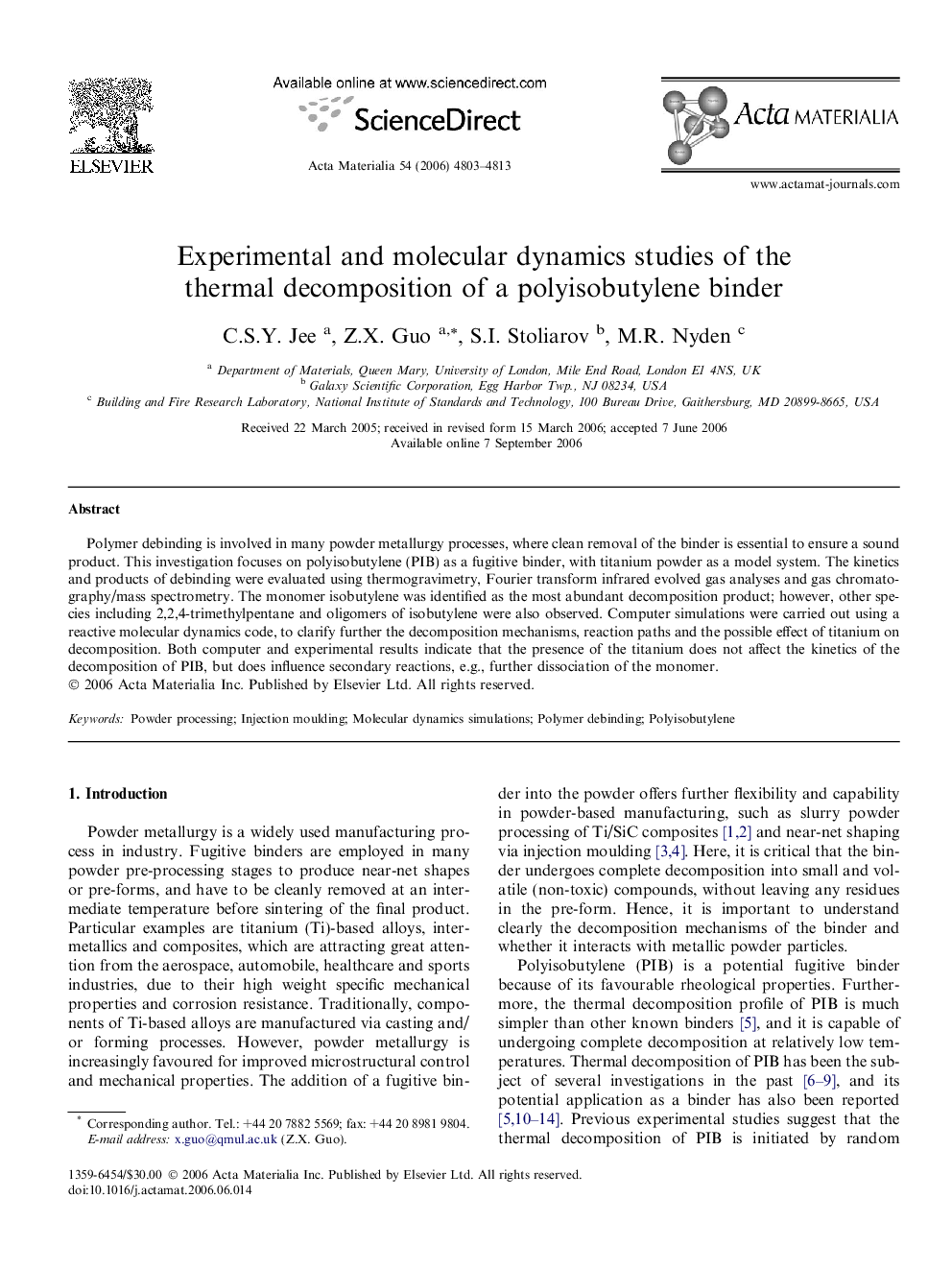| Article ID | Journal | Published Year | Pages | File Type |
|---|---|---|---|---|
| 1450141 | Acta Materialia | 2006 | 11 Pages |
Polymer debinding is involved in many powder metallurgy processes, where clean removal of the binder is essential to ensure a sound product. This investigation focuses on polyisobutylene (PIB) as a fugitive binder, with titanium powder as a model system. The kinetics and products of debinding were evaluated using thermogravimetry, Fourier transform infrared evolved gas analyses and gas chromatography/mass spectrometry. The monomer isobutylene was identified as the most abundant decomposition product; however, other species including 2,2,4-trimethylpentane and oligomers of isobutylene were also observed. Computer simulations were carried out using a reactive molecular dynamics code, to clarify further the decomposition mechanisms, reaction paths and the possible effect of titanium on decomposition. Both computer and experimental results indicate that the presence of the titanium does not affect the kinetics of the decomposition of PIB, but does influence secondary reactions, e.g., further dissociation of the monomer.
